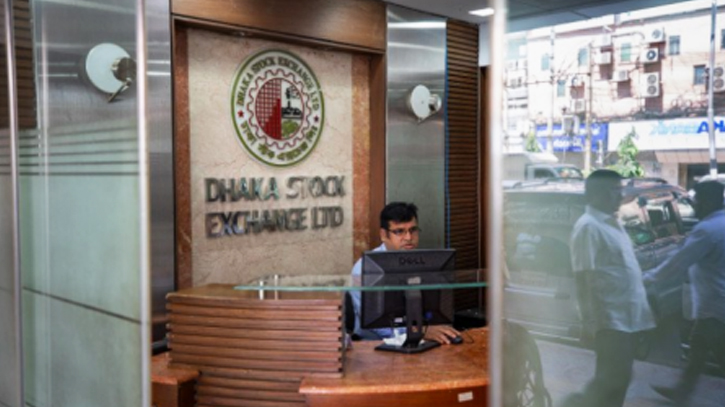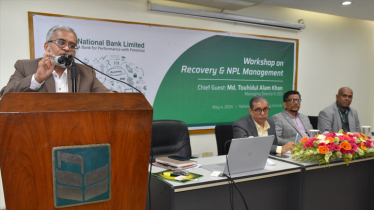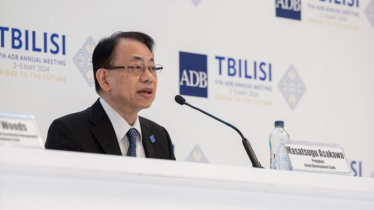
Photo: Collected
In the opening day after the regulator's decision, the DSEX dropped 98 points till 11:30am
The benchmark index DSEX of the Dhaka Stock Exchange (DSE) plunged today (25 April), continuing the downward trend, despite the regulator cutting the daily lower circuit breaker limit to 3% instead of up to 10%.
The interference by the regulator dragged the index to a 36-month low of 5,518.
As per the latest directive issued on Wednesday, the Bangladesh Securities and Exchange Commission (BSEC) mandated that from Thursday onward, no stock can experience a decline of more than 3% per day, significantly narrower than the previous 10% limit, across both the Dhaka and Chattogram bourses.
The market, however, reacted negatively to the imposition of this daily decline limit. On fear of their money being stuck in the stock market, many gave in to the selling pressure. In 2022, the floor price was restricted to stop free fall of share prices, This led to many share prices becoming stagnant and share holders not making any money.
In the opening day after the regulator's decision, the DSEX dropped 98 points till 11:30am. After, it recovered slightly and at the end of the day, the DSEX lost 60 points.
During the session, 69 issues advanced, while 300 declined and 27 remained unchanged.
The turnover value dropped 15% to Tk511 crore.
In a bid to arrest the downward spiral in the stock market, prompted by the removal of a significant regulatory curb – the floor price, the Bangladesh Securities and Exchange Commission (BSEC) again resorted to its regulatory toolkit on Wednesday.
However, the commission clarifies that this regulation is a provisional measure, subject to further updates.
Investor confidence remains subdued
Investor confidence in the country's capital market remains subdued, as reported by the World Bank in its "Bangladesh Development Update," released on 2 April.
In its report, the World Bank mentioned that the BSEC withdrew floor prices on equities on 18 January, a move deemed to have alleviated a major market distortion.
Through the floor price, which was imposed in July 2022 to prevent the fall of the stock market, the regulatory body artificially kept the market within a limit for more than one and a half years, said the global lender. But after the floor price restrictions were lifted, the market could no longer be tied, it said.
Moreover, FTSE Russell, a subsidiary of the London Stock Exchange Group, maintained the rating for the Bangladesh capital market as "Not Met" in the criterion of efficient trading mechanisms as the bourse has yet to fully lift the floor price restrictions.
FTSE Russell is a leading global provider of index and benchmark solutions, spanning diverse asset classes and investment objectives.
In a report titled "FTSE Equity Country Classification Interim Announcement March 2024," published on 27 March, FTSE Russell stated that the "Efficient Trading Mechanism" criterion for Bangladesh has been downgraded from "Restricted" to a "Not Met" rating.
FTSE Russell has noted that following the recent announcements by the BSEC to lift the floor price restriction on all but six listed securities, it continues to engage with the regulator to confirm when the final restrictions will be lifted.
Messenger/Sumon










